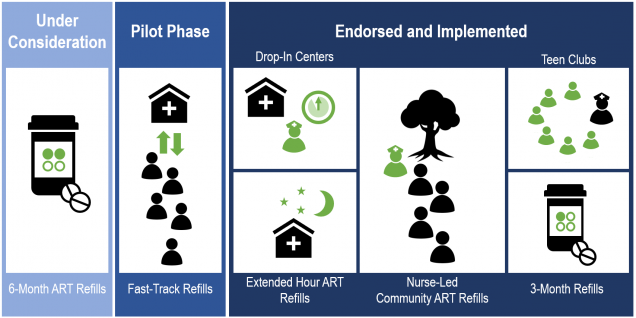Malawi
Malawi introduced differentiated service delivery (DSD) in 2006 as part of a national strategy to build a robust national HIV program focused on the needs of the diverse population of people living with HIV. Strong political support for DSD scale-up as well as international partners has created an enabling environment for implementation. Currently Malawi is focusing on scaling up three-month refills for stable patients and fast-track refills, with additional models being evaluated. DSD is supported in all 28 districts in Malawi and half of the implementing partners currently supporting antiretroviral therapy (ART) services in the country are also supporting DSD implementation.

AMBIT in Malawi
We are now exploring the current extent of DSD implementation in Malawi, what is known about the scale of implementation, and the existing criteria for scale-up. For this purpose, we are identifying relevant data sources (publications, project databases, national EMR, etc.). Our next step will be to use available data on patient numbers and characteristics, facility locations, facility capacity, costs, and other variables to make recommendations about the most efficient combinations(s) of models of care to be implemented in each district.
Content adapted from: Wilson et al., Taking Differentiated Service Delivery to Scale in Malawi: Expanding Promising Models to Address Gaps. November 2018